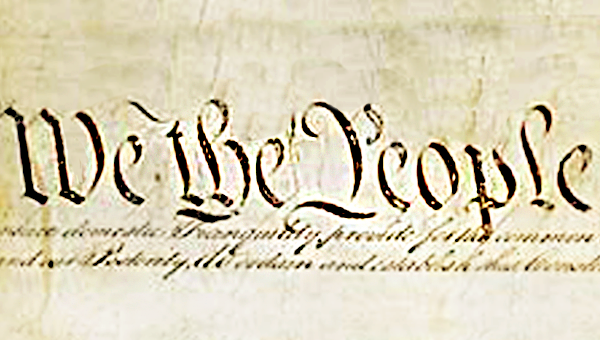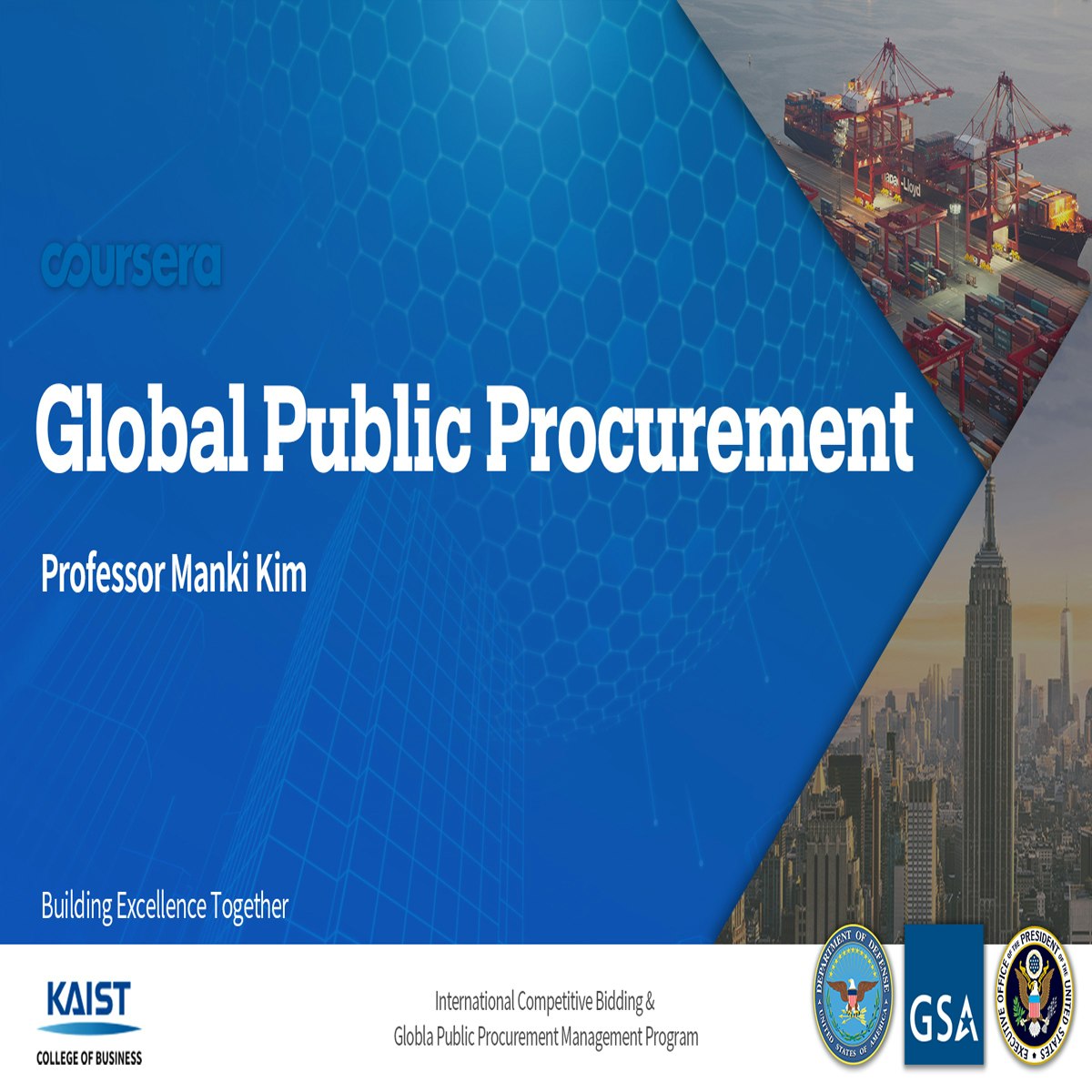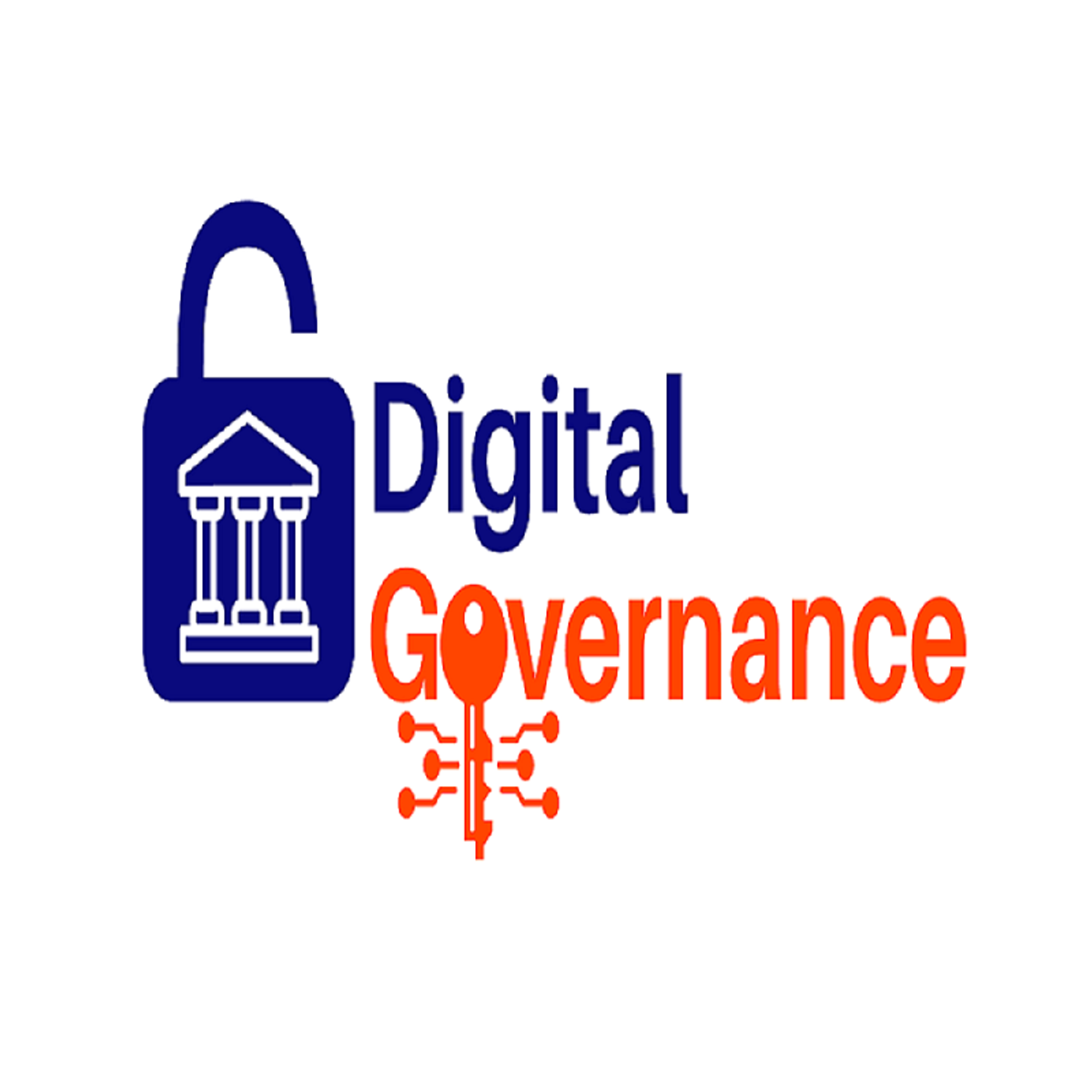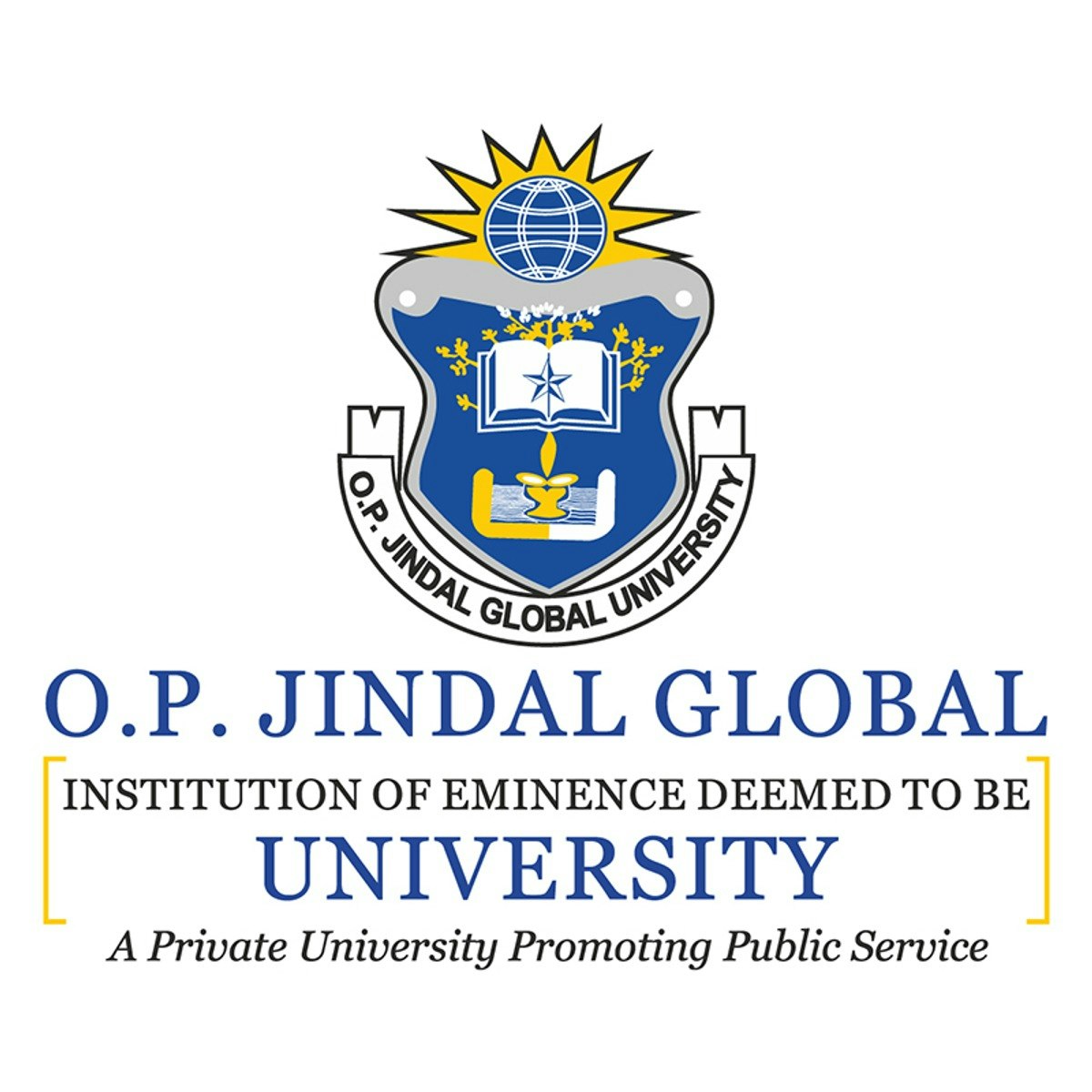Government Relations Manager
vigating the Intersection of Policy and Advocacy: A Career as a Government Relations Manager
A Government Relations Manager acts as a vital link between an organization and governmental bodies at all levels—local, state, and federal. This role involves strategizing and directing an organization's interactions with policymakers, legislative branches, regulatory agencies, and other public sector institutions. The primary aim is to ensure the organization's interests are clearly communicated, understood, and considered within legislative and regulatory arenas. Individuals in this career find themselves at the exciting crossroads of public policy and private advocacy, a position that allows them to actively shape the regulatory landscape and foster a favorable environment for their organization. This can involve promoting legislative efforts beneficial to their organization and working with public relations teams to garner support from both government officials and the public.
The work of a Government Relations Manager is dynamic and can be intellectually stimulating. A key aspect involves meticulously tracking legislative and regulatory shifts, evaluating their potential effects, and crafting strategic responses. This requires a keen understanding of complex political environments and the nuances of public policy. Furthermore, the role often involves building and nurturing a robust network of contacts, engaging directly with policymakers to advocate for beneficial policies or to mitigate the impact of unfavorable regulations. This intersection of analytical rigor and interpersonal engagement makes the career appealing to those who thrive on understanding intricate systems and influencing outcomes.
Role Overview and Core Objectives
A Government Relations Manager plays a crucial role in bridging the gap between an organization and various governmental entities. This position is pivotal in ensuring that an organization's voice is heard and its interests are considered in the complex world of policymaking. Their work is not just about reacting to policy changes but proactively shaping them.
Defining the Role of a Government Relations Manager
At its core, the role of a Government Relations Manager is to develop and manage the relationship between an organization and governmental agencies. This involves a multifaceted approach that includes strategic planning, in-depth policy analysis, and targeted advocacy efforts designed to influence legislation and regulations that could affect the organization. They are responsible for ensuring their organization remains compliant with existing laws and regulations while simultaneously working to foster a legislative environment that supports their objectives.
These professionals are the organization's eyes and ears on the ground, monitoring governmental activities that could impact their business or clients. They must stay consistently updated on existing and proposed legislation, meet with government officials and lobbyists, and keep their organization's leadership informed about relevant legal and regulatory developments. This requires a deep understanding of governmental processes and the ability to foresee potential challenges and opportunities.
A significant part of their responsibility lies in communicating the organization's stance on pertinent issues. This can involve preparing and presenting position papers, offering testimony before government committees, and drafting reports. They serve as a key liaison, ensuring effective communication and collaboration with government entities to support organizational goals.
Aligning Organizational and Governmental Goals
A key objective for a Government Relations Manager is to align the organization's goals with governmental policies and initiatives. This involves not only advocating for the organization's interests but also understanding the priorities and concerns of policymakers. By finding common ground and demonstrating how the organization's objectives can contribute to broader public good or governmental aims, these managers can build stronger, more productive relationships.
This alignment is crucial for long-term success. Government Relations Managers provide strategic advice to senior management, helping them understand the potential impacts of legislative and regulatory changes. They recommend actions that position the organization to navigate the political landscape effectively and ethically. This strategic foresight helps organizations adapt to evolving regulatory environments and identify opportunities for collaboration with governmental bodies.
The role also involves guiding the enterprise on communication with the government, suggesting business strategies based on macroeconomic trends, and assessing the investment environment. They provide early warnings regarding government policies to manage compliance and policy risks, thereby reducing their potential negative impact on the business. This proactive stance ensures that the organization is not merely reacting to governmental actions but is an informed participant in the policy dialogue.
Industries Where This Role Is Critical
Government Relations Managers are indispensable in industries heavily regulated or significantly impacted by governmental policies. These sectors rely on skilled professionals to navigate the complex web of laws and regulations and to advocate for their interests. The specific issues and policy areas can vary widely depending on the industry.
For example, in the healthcare sector, Government Relations Managers deal with issues such as drug pricing, regulatory approvals for new treatments, and healthcare policies. In the energy sector, they focus on environmental regulations, energy production incentives, and policies related to climate change. The technology industry requires these managers to address data privacy, cybersecurity regulations, and policies affecting innovation and digital services. Similarly, the finance industry relies on them to navigate banking regulations, consumer protection laws, and monetary policies.
Other sectors where this role is critical include pharmaceuticals, where navigating drug approval processes and pricing regulations is key, and any industry with a significant public presence or one that frequently interacts with government procurement processes. Essentially, any organization whose operations are closely tied to government oversight benefits immensely from the expertise of a Government Relations Manager.
Key Responsibilities and Daily Duties
The daily life of a Government Relations Manager is often a dynamic mix of research, communication, and strategic planning. They are tasked with understanding the intricacies of policy and translating that understanding into actionable strategies for their organization. This requires a constant awareness of the political and legislative environment.
Policy Analysis and Legislative Monitoring
A fundamental responsibility of a Government Relations Manager is the continuous monitoring and analysis of legislation and regulatory developments that could affect their organization. This involves tracking bills as they move through legislative bodies, scrutinizing proposed regulations from government agencies, and understanding the potential impact of these governmental actions. They must be adept at dissecting complex policy documents to identify both risks and opportunities for their organization.
This analytical work informs the strategic advice they provide to senior management. Based on their analysis, they help leaders understand the implications of policy changes and recommend appropriate responses. This might involve preparing detailed reports, policy briefs, and factsheets that clearly articulate the organization's position and the reasoning behind it.
Furthermore, these professionals are often responsible for ensuring the organization's awareness of federal and state legislation affecting its activities. This proactive approach allows the organization to prepare for changes and, where possible, to influence them in a favorable direction.
Stakeholder Engagement and Advocacy
Building and maintaining strong relationships with a diverse range of stakeholders is a cornerstone of the Government Relations Manager's role. These stakeholders include elected officials and their staff, regulatory agency personnel, industry association representatives, community leaders, and sometimes even the media. Effective engagement requires excellent interpersonal and communication skills, as well as the ability to navigate complex political environments.
Advocacy is a primary function of this engagement. Government Relations Managers advocate for policies favorable to their organization and work to mitigate the impact of potentially adverse regulations. This often involves direct lobbying, where they communicate their organization's position to policymakers and attempt to influence their decisions. This can also include grassroots advocacy, mobilizing employees or members of the public to support the organization's stance.
They may also represent their organization in meetings with government representatives, testify before legislative committees, and participate in industry coalitions to amplify their advocacy efforts. The goal is always to ensure that the organization's perspective is heard and understood by those in positions of power.
To effectively engage stakeholders and advocate for their organization's interests, Government Relations Managers benefit from a strong understanding of public engagement strategies and the dynamics of stakeholder management.
Compliance, Crisis Management, and Communication
Ensuring organizational compliance with all relevant governmental regulations is another critical responsibility. Government Relations Managers must have a strong understanding of the regulatory frameworks governing their industry and work with internal teams to implement necessary changes and maintain ongoing compliance. This includes managing and tracking lobbying activities and expenditures in accordance with legal and ethical guidelines.
In times of crisis, the Government Relations Manager plays a vital role. Effective government relations can be a lifeline, providing access to resources, regulatory flexibility, and enhanced communication channels with government entities. They help the organization navigate the challenges of a crisis by leveraging their established relationships and understanding of governmental processes. This might involve communicating the organization's response to government officials or seeking assistance to mitigate the crisis's impact.
Clear and effective communication is paramount in all aspects of the role. This includes internal communication to keep colleagues and leadership informed of policy developments and external communication to articulate the organization's position to policymakers and the public. They must be skilled in preparing a variety of written materials, from concise fact sheets to detailed policy analyses, and be able to present information persuasively in oral briefings and testimony.
Understanding how to craft and deliver impactful messages is crucial. Courses focusing on speechwriting and public communication can be very beneficial for professionals in this field.
Essential Skills and Competencies
Success as a Government Relations Manager hinges on a unique blend of analytical prowess, communication finesse, and a deep understanding of the political and regulatory landscape. These professionals must be able to think strategically, build strong relationships, and navigate complex, often rapidly changing environments.
Analytical and Research Skills
Strong analytical skills are fundamental for a Government Relations Manager. They need the ability to thoroughly research and analyze legislative proposals, regulatory changes, and public policy documents to understand their potential impact on the organization. This involves identifying key issues, assessing risks and opportunities, and developing informed, strategic responses.
This research extends to understanding the political landscape, including the positions and priorities of various policymakers and stakeholder groups. Government Relations Managers must be able to synthesize large amounts of information from diverse sources and distill it into clear, actionable insights for their organization's leadership. Critical thinking is essential for evaluating the validity of information and for developing persuasive arguments to support the organization's positions.
The ability to conduct thorough background research is also vital when preparing briefings, testimony, or position papers. This ensures that the organization's advocacy efforts are well-informed and credible.
Communication, Negotiation, and Interpersonal Skills
Exceptional communication skills, both written and oral, are non-negotiable for a Government Relations Manager. They must be able to articulate their organization's position clearly, concisely, and persuasively to a variety of audiences, including government officials, industry peers, and the public. This includes drafting compelling arguments, delivering effective presentations, and preparing well-structured reports and testimony.
Negotiation and diplomacy are also key competencies. Government Relations Managers often find themselves in situations requiring them to advocate for their organization's interests while also seeking common ground and building consensus with stakeholders who may have differing viewpoints. The ability to build and maintain strong, trusting relationships with government officials, lobbyists, and other key players is crucial for success.
Interpersonal skills are vital for effective networking and stakeholder engagement. These professionals must be adept at working with people from diverse backgrounds and navigating complex interpersonal dynamics. Strong follow-through and attention to detail are also important for managing relationships and ensuring that commitments are met.
For those looking to enhance their communication and negotiation abilities, specialized courses can provide valuable frameworks and techniques.
Knowledge of Political and Regulatory Landscapes
A deep and current understanding of local, state, and federal legislative and executive processes is essential for a Government Relations Manager. They need to know how laws are made, how regulations are developed and implemented, and who the key decision-makers are at each stage. This knowledge allows them to effectively navigate the system and identify strategic points for engagement.
Equally important is a strong grasp of the specific public policy issues relevant to their organization and industry. This includes understanding the existing regulatory frameworks and staying abreast of emerging trends and potential changes. Political awareness, including an understanding of the current political climate and the motivations of various political actors, is also critical for developing effective advocacy strategies.
Government Relations Managers must be able to interpret complex legal and regulatory language and explain its implications to non-experts within their organization. This expertise allows them to ensure compliance and to advise leadership on how to best position the organization in response to governmental actions.
Courses focusing on U.S. public policy and political institutions can provide a solid foundation in these areas.
Foundational knowledge in political concepts is also highly beneficial.
Educational Pathways and Formal Education
Embarking on a career as a Government Relations Manager typically begins with a solid educational foundation. While specific requirements can vary, certain fields of study and advanced qualifications can significantly enhance a candidate's prospects in this competitive field. Practical experience through internships and entry-level roles is also highly valued.
Relevant Degrees and Fields of Study
A bachelor's degree is generally considered the minimum educational requirement for entry into the field of government relations. Commonly preferred degrees include Political Science, Public Administration, Law, Communications, Public Relations, or Economics. These programs provide students with a foundational understanding of governmental structures, political theory, the policymaking process, legal principles, and economic impacts relevant to government affairs.
Coursework in areas such as public policy analysis, political systems, constitutional law, legislative processes, and persuasive communication can be particularly beneficial. Some individuals may also pursue degrees in fields directly related to the industry they wish to work in, such as healthcare administration or environmental science, and then supplement this with coursework or a minor in political science or public policy.
While a bachelor's degree is often sufficient for entry-level positions, a master's degree in Public Administration (MPA), Political Science, Public Policy (MPP), or even a Juris Doctor (JD) can be advantageous, especially for those aspiring to leadership roles. Advanced degrees can offer deeper insights into policy analysis, strategic management, legal frameworks, and advanced governmental concepts.
The Role of Certifications and Specialized Training
While not always mandatory, professional certifications and specialized training can provide a competitive edge and demonstrate a commitment to the field. Several organizations offer certifications for government relations, lobbying, and public affairs professionals. These programs often cover topics such as ethical conduct, lobbying regulations, advocacy strategies, and public policy analysis.
For example, certifications like the Certified Public Policy Analyst (CPPA) or those focused on specific areas like federal contracts management (CFCM) can enhance a professional's credentials. The Public Affairs Council offers certificate programs in areas like Government Relations and Lobbying, Public Affairs Management, and PAC & Grassroots Management. Similarly, the National Institute for Lobbying & Ethics offers a Public Policy Certificate (PPC) program. The State Government Affairs Council (SGAC) also provides a professional certificate program specifically designed for state government affairs professionals.
These programs can be particularly valuable for individuals transitioning from other fields or for those looking to deepen their expertise in specific aspects of government relations. They often provide practical skills and knowledge that can be immediately applied in the workplace.
Consider these books for a deeper understanding of democratic processes and public participation, which are central to the work of a Government Relations Manager.
Internships and Graduate Programs
Practical experience is invaluable in the field of government relations, and internships offer an excellent pathway to gain this experience. Internships in government agencies, legislative offices, lobbying firms, advocacy organizations, or the government relations departments of corporations or non-profits can provide firsthand exposure to the daily realities of the profession. These opportunities allow aspiring professionals to develop essential skills, build a professional network, and gain insights into the legislative and policymaking processes.
Graduate programs, particularly those with a strong focus on public policy, political management, or public administration, can further enhance a candidate's qualifications. Some graduate programs may offer specialized tracks or concentrations in areas like legislative affairs, advocacy, or international relations. These programs often incorporate practical components, such as capstone projects, policy workshops, or required internships, providing students with opportunities to apply their academic learning in real-world settings.
Networking during internships and graduate studies is also crucial. Building relationships with professionals in the field can lead to mentorship opportunities and potential job leads upon graduation. Many successful Government Relations Managers credit their early career experiences and the networks they built during that time as foundational to their career progression.
For students and early-career professionals, courses focusing on the structure and function of government, as well as specific policy areas, can be highly beneficial. Online platforms like OpenCourser offer a wide array of options to explore these topics. For instance, gaining a global perspective on public procurement or understanding European political structures can broaden one's understanding of governmental processes.
A course on U.S. political institutions can also be very relevant.
Career Progression and Entry Points
The path to becoming a Government Relations Manager often involves starting in foundational roles and gradually taking on more responsibility and strategic oversight. It's a field where experience, a strong network, and a proven ability to navigate complex political landscapes are highly valued. For those considering a career change or just starting, understanding the typical trajectory can help in planning and setting realistic expectations.
Typical Entry-Level Roles
For individuals aspiring to a career in government relations, several entry-level positions can serve as excellent starting points. Roles such as Policy Analyst, Legislative Assistant or Legislative Aide, or Public Affairs Specialist are common entry points. In these roles, professionals gain invaluable experience in policy research, legislative tracking, drafting communications, and supporting senior staff in advocacy efforts.
A Policy Analyst typically focuses on researching and analyzing proposed legislation and regulations, understanding their potential impact, and preparing briefs and reports. A Legislative Assistant often works directly for an elected official or a legislative committee, assisting with legislative research, constituent communication, and a variety of administrative tasks. Public Affairs Specialists may be involved in a broader range of activities, including media relations, community outreach, and supporting advocacy campaigns.
These initial roles provide a crucial learning ground for understanding the intricacies of the legislative process, developing analytical and communication skills, and beginning to build a professional network. Gaining experience in a government agency, a non-profit advocacy group, a trade association, or a corporate government affairs office can all provide a solid foundation.
Advancing to Mid-Career and Senior Management
With several years of experience and a demonstrated track record of success, professionals can advance to mid-career roles such as Government Relations Specialist, Senior Policy Advisor, or directly into a Government Relations Manager position. At this stage, responsibilities typically expand to include developing and implementing advocacy strategies, managing relationships with key stakeholders, and potentially overseeing junior staff.
As a Government Relations Manager, individuals are expected to have a deeper understanding of the political landscape and the ability to align advocacy efforts with broader organizational objectives. They take on more strategic roles, leading specific initiatives and often serving as the primary point of contact with government officials. Strong project management skills become increasingly important, as does the ability to manage budgets and resources for government affairs programs.
Further advancement can lead to senior management and leadership roles such as Senior Government Relations Manager, Director of Government Relations, or Vice President of Public Affairs/Government Relations. These positions involve a higher level of strategic planning, cross-functional leadership, and responsibility for shaping the organization's overall government relations strategy. Senior leaders often represent the organization at the highest levels of government and in key industry forums.
The timeline to reach a manager-level position can vary, typically taking around 5-7 years for those who start in entry-level roles with a relevant bachelor's degree. Continuous learning, networking, and a commitment to developing expertise are key to progression.
Professionals in these roles often need a sophisticated understanding of policy and its implications. Books on political order and environmental regulation can offer valuable context.
Pivoting from Other Careers
Transitioning into a Government Relations Manager role from other careers is certainly possible, though it often requires a strategic approach to acquiring relevant skills and experience. Individuals with backgrounds in law, journalism, public relations, political campaigns, or even business roles that involved significant regulatory interaction may find they possess transferable skills.
For those looking to make such a pivot, highlighting analytical abilities, communication and negotiation skills, and any experience with policy or regulatory matters is crucial. Networking actively within the government relations community, seeking informational interviews, and potentially pursuing additional education or certifications in public policy or government affairs can strengthen a candidate's profile. Sometimes, a transitional role, perhaps as a policy analyst or a specialist in a particular area of government relations, might be a necessary step to gain direct experience before moving into a management position.
It's important to be realistic about the learning curve. While your existing experience is valuable, understanding the specific nuances of legislative processes, lobbying ethics, and the political dynamics of the relevant jurisdiction takes time and dedicated effort. Demonstrating a genuine interest in public policy and a commitment to understanding the field will be key to making a successful transition. OpenCourser's extensive catalog can be a great resource for finding courses to bridge any knowledge gaps in Public Policy or Political Science.
If you are considering a career change, remember that your diverse experiences can bring a unique perspective to the field. Ground yourself in the realities of the role, identify your transferable skills, and be prepared to invest in learning the specific knowledge required. The journey might have its challenges, but the skills and insights gained in other professions can often be reframed as valuable assets in the world of government relations.
Industry Trends and Challenges
The field of government relations is dynamic, constantly evolving in response to technological advancements, shifting political landscapes, and new societal challenges. Professionals in this area must be adaptable and forward-thinking to remain effective. Understanding current trends and anticipating future challenges is crucial for success.
The Rise of Digital Advocacy and Data-Driven Policy
Technology, particularly digital tools and data analytics, is profoundly transforming government relations. Digital advocacy, which includes using social media, email campaigns, online petitions, and other digital platforms to engage stakeholders and influence public policy, has become increasingly important. Government Relations Managers must be proficient in leveraging these digital tools to build public support, communicate with policymakers, and mobilize grassroots efforts.
Data analytics is also playing a larger role. Government affairs teams are using data to track legislative developments more efficiently, analyze policy impacts, identify receptive legislators, and measure the effectiveness of their advocacy campaigns. AI-powered tools can help digest complex bills quickly and analyze large datasets to uncover trends and insights. This data-driven approach allows for more targeted and evidence-based advocacy.
While technology offers significant advantages, it also presents challenges, such as the need to ensure data privacy and security, and the risk of misinformation spreading online. Professionals must critically evaluate and responsibly use these new tools.
Courses on digital governance and the impact of technology on policy can provide valuable insights into these evolving areas.
Understanding the principles of public procurement in a global context is also increasingly relevant as digital platforms facilitate international engagement.
Globalization and Cross-Border Regulatory Challenges
As businesses and organizations operate on an increasingly global scale, Government Relations Managers are often confronted with the complexities of cross-border regulatory challenges. Multinational corporations and international non-governmental organizations (NGOs) must navigate a diverse array of legal systems, political environments, and cultural norms.
This requires a sophisticated understanding of international relations, comparative public policy, and the workings of international_organizations. Professionals in this space must be adept at monitoring policy developments across multiple jurisdictions and coordinating advocacy efforts that span different countries and cultures. Issues such as international trade agreements, differing environmental or labor standards, and global health regulations can all fall under their purview.
Cultural competence and the ability to build relationships with government officials and stakeholders from diverse backgrounds are paramount. The globalization of regulatory challenges means that what happens in one country can often have ripple effects elsewhere, requiring a holistic and internationally-minded approach to government relations.
For those interested in the international dimensions of policy, courses on global strategy and economic relations can be very useful.
Navigating Polarized Political Climates and Crisis Management
Operating in politically polarized environments presents significant challenges for Government Relations Managers. Heightened partisanship can make it more difficult to find common ground, build bipartisan consensus, and advance an organization's policy agenda. Effective communication in a crowded and often contentious information landscape requires careful strategy and messaging.
Crisis management remains a critical function, and polarized climates can exacerbate crises or create new ones. Government Relations Managers must be prepared to navigate rapid-response situations, manage their organization's reputation, and engage with policymakers during times of intense public scrutiny. This requires resilience, strong communication skills, and the ability to maintain composure under pressure.
Successfully navigating these challenges often involves a proactive and strategic approach to relationship-building across the political spectrum, a commitment to transparent and ethical conduct, and the ability to adapt strategies to evolving political dynamics. Information overload is another common challenge, with a constant stream of updates making it difficult to stay on top of all relevant developments. Leveraging technology and building efficient information management systems can help address this.
Understanding ethics in public policy is vital when operating in such complex environments.
Books discussing deliberative practices and public participation can also offer frameworks for navigating challenging political discussions.
Ethical and Regulatory Compliance
The practice of government relations operates within a framework of legal and ethical standards designed to ensure transparency and maintain public trust in the policymaking process. For Government Relations Managers, a steadfast commitment to ethical conduct and meticulous compliance with all applicable regulations is not just a requirement, but a cornerstone of their professional integrity and long-term effectiveness.
Understanding Lobbying Regulations and Transparency
Lobbying, a core component of government relations, is subject to specific regulations at the federal, state, and often local levels. These regulations typically govern who must register as a lobbyist, what activities constitute lobbying, and what disclosures are required regarding lobbying expenditures and contacts with public officials. Government Relations Managers must have a thorough understanding of these rules to ensure that all their organization's lobbying activities are conducted in full compliance.
Transparency is a key principle underlying lobbying regulations. Disclosure requirements aim to make the process of influencing government decisions visible to the public, helping to prevent undue influence and maintain the integrity of the democratic process. This includes accurate reporting of lobbying expenses, the issues being lobbied on, and the officials being contacted. Maintaining meticulous records is essential for compliance.
These regulations can be complex and vary by jurisdiction, requiring ongoing attention to changes in the law. Many organizations rely on their Government Relations Managers, often in consultation with legal counsel, to navigate these requirements effectively.
A foundational understanding of legal frameworks and ethical considerations is essential. OpenCourser offers a variety of Legal Studies courses that can provide relevant background.
Managing Conflicts of Interest and Upholding Ethical Standards
Ethical conduct in government relations extends beyond mere compliance with lobbying laws. It involves upholding high standards of professionalism, integrity, and honesty in all interactions with public officials and other stakeholders. Government Relations Managers have an ethical obligation to provide accurate and truthful information, to avoid misrepresentation, and to engage in respectful dialogue, even with those who hold opposing views.
Managing potential and actual conflicts of interest is a critical aspect of ethical practice. This involves being transparent about the interests the organization represents and taking steps to ensure that personal interests do not improperly influence professional duties or public policy outcomes. Ethical lobbyists prioritize the public interest alongside their organization's goals, striving for policy solutions that are broadly beneficial.
Many professional associations for government relations and lobbying professionals have established codes of conduct that provide guidance on ethical behavior. Adherence to these codes, along with a personal commitment to ethical principles, helps to build trust and credibility, which are invaluable assets in this field. Ultimately, ethical lobbying is recognized as a legitimate and important part of a vibrant democracy.
Courses that explore ethics in public policy and anti-corruption measures can provide valuable frameworks for navigating these complex issues.
The book "The State of Public Administration" can offer broader context on governance and ethical considerations within public service.
Case Studies and Real-World Ethical Dilemmas
Examining case studies and real-world ethical dilemmas can be a powerful way for Government Relations Managers to develop their ethical reasoning and decision-making skills. Learning from situations where others have faced difficult choices can help professionals anticipate potential pitfalls and develop strategies for navigating them. These scenarios might involve pressure to misrepresent information, requests for inappropriate favors, or navigating situations where an organization's interests appear to conflict sharply with the public good.
Discussions within professional networks, industry forums, and continuing education programs often feature analyses of such cases. These discussions can illuminate the nuances of ethical decision-making in government relations and highlight best practices for maintaining integrity under pressure. The Independent Commission Against Corruption (ICAC) in New South Wales, Australia, for example, provides resources and engages in discussions about ethical lobbying and transparency. Their work underscores the public perception issues that can arise from undocumented meetings or lobbying in social settings.
Ultimately, ethical challenges are an inherent part of a field that operates at the nexus of private interests and public policy. By cultivating a strong ethical compass, staying informed about regulatory requirements, and being prepared to make principled decisions, Government Relations Managers can uphold the integrity of their profession and contribute positively to the policymaking process.
International Opportunities and Market Dynamics
The scope of government relations is increasingly extending beyond national borders. As organizations expand globally and policy issues become more interconnected, opportunities for Government Relations Managers with international expertise are growing. This global dimension brings new complexities and demands a nuanced understanding of different political systems and cultural contexts.
Navigating Cross-Border Regulatory Frameworks
Organizations operating in multiple countries face the significant challenge of navigating diverse and sometimes conflicting regulatory frameworks. A Government Relations Manager with international responsibilities must understand the legislative processes, compliance requirements, and enforcement mechanisms in each relevant jurisdiction. This can involve issues ranging from trade policy and tariffs to data protection laws, environmental standards, and labor regulations.
The complexity is compounded by the fact that international laws and treaties can also impact national regulations. Staying abreast of developments at international bodies like the World Trade Organization, the United Nations, or regional blocs like the European Union is often necessary. [8m24ly] Effective cross-border government relations require not only legal and policy expertise but also the ability to coordinate strategies across different countries and adapt approaches to local contexts.
This often means working closely with local legal counsel and in-country government affairs teams to ensure a cohesive and compliant approach. The ability to anticipate how regulatory changes in one region might affect operations or policy in another is a key skill for those in international government relations.
Understanding global public procurement processes is essential for organizations looking to engage with governments internationally. Courses like "Global Public Procurement" can provide crucial insights.
A broader understanding of how major global players approach international relations can also be beneficial.
Roles in Multinational Corporations and NGOs
Multinational corporations (MNCs) are significant employers of Government Relations Managers with international expertise. These companies need professionals who can help them understand and influence policy in the various markets where they operate, manage political risk, and ensure compliance with a multitude of national and international laws. The work can involve advocating for favorable trade policies, addressing market access issues, or engaging on regulations that affect their specific industry.
International Non-Governmental Organizations (NGOs) also play a critical role in global policy and advocacy, and thus also require skilled government relations professionals. These organizations may advocate for human rights, environmental protection, global health initiatives, or development aid. Their Government Relations Managers engage with governments around the world, as well as with international institutions, to promote their policy objectives and secure funding or support for their programs. The World Benchmarking Alliance (WBA), for instance, employs Government Relations Managers to strengthen relationships with governments to advance Sustainable Development Goal (SDG) implementation.
In both MNCs and international NGOs, these roles often require frequent travel, strong cross-cultural communication skills, and the ability to work effectively with diverse teams spread across different time zones and continents.
For those working with organizations focused on development and societal impact, understanding concepts like social responsibility can be key.
The Importance of Cultural Competence in Global Advocacy
Effective global advocacy hinges on cultural competence. Understanding and respecting cultural norms, communication styles, and political sensitivities is crucial when engaging with government officials and stakeholders in different countries. What might be an effective advocacy approach in one culture could be counterproductive or even offensive in another.
Cultural competence involves more than just language skills; it encompasses an awareness of history, social structures, and underlying values that shape political discourse and decision-making. Building trust and rapport with international counterparts requires demonstrating a genuine understanding of and respect for their perspectives. This might involve adapting communication strategies, negotiation tactics, and even the framing of policy arguments to resonate with the local cultural context.
For Government Relations Managers working internationally, investing time in learning about the cultures they will be interacting with is essential. This can involve formal training, seeking advice from local experts, and approaching intercultural interactions with humility and a willingness to learn. A lack of cultural competence can undermine even the most well-intentioned advocacy efforts.
Understanding different political and legal systems is fundamental. Courses exploring English Common Law or specific national political ideologies can broaden this understanding.
Online Learning and Professional Development
In the ever-evolving field of government relations, continuous learning and professional development are not just beneficial, but essential. Online learning platforms, including OpenCourser, offer a wealth of resources for both aspiring and established Government Relations Managers to acquire new knowledge, hone existing skills, and stay current with emerging trends. Whether you are looking to build foundational understanding, supplement formal education, or enhance your current professional practice, online courses provide flexible and accessible pathways.
Utilizing MOOCs for Policy, Advocacy, and Legal Knowledge
Massive Open Online Courses (MOOCs) provide a fantastic opportunity to delve into subjects crucial for a Government Relations Manager. You can find courses covering a wide spectrum of topics, from the fundamentals of public policy and political science to specific areas like constitutional law, international relations, and environmental policy. These courses, often offered by renowned universities and institutions, can help build a strong theoretical understanding of how governments operate, how policies are made, and the legal frameworks that underpin them. [6h7qd3, lzeqhz, 5ofbeo]
For those new to the field or looking to transition, MOOCs can be an excellent way to gain foundational knowledge and explore different facets of government relations. They can help you understand key concepts in political science or the intricacies of U.S. public policy. [9ymeux, 5ofbeo] Even for seasoned professionals, these courses can offer fresh perspectives or deeper dives into niche areas relevant to their work, such as understanding regulatory frameworks or the specifics of multistate taxation. [1, x4rfva]
OpenCourser makes it easy to search through thousands of online courses, allowing you to find programs that align with your specific learning goals. The platform's features, such as detailed course descriptions, syllabi (when available), and reviews, help learners make informed choices. You can even save courses to a list to plan your learning journey.
Here are some courses that cover foundational concepts in public policy and law:
Pursuing Certifications from Recognized Institutions Online
Beyond individual courses, many recognized institutions and professional organizations now offer certifications and specialized training programs online. These can be a valuable way to gain targeted skills in areas like lobbying, public affairs management, ethical conduct, or specific policy domains. Earning a certification can enhance your resume, demonstrate your commitment to the profession, and provide you with practical knowledge that you can apply directly to your work.
Online certificate programs offer flexibility, allowing working professionals to upskill without having to take significant time away from their careers. Organizations like the Public Affairs Council and the National Institute for Lobbying & Ethics provide such programs, covering best practices in influencing policy and maintaining ethical standards. These can be particularly useful for those looking to formalize their existing knowledge or gain expertise in a new area of government relations. OpenCourser can help you identify relevant certificate programs by browsing categories like Public Policy or Professional Development.
When considering online certifications, it's wise to research the issuing institution's reputation and the curriculum's relevance to your career goals. The OpenCourser Learner's Guide offers articles on topics like how to earn an online course certificate and add it to your professional profiles.
Consider these courses that delve into ethical considerations and specialized areas relevant to government relations:
Hybrid Learning and Applying Skills Through Projects
Many online courses and programs are moving towards a hybrid model, blending self-paced online learning with interactive components like live webinars, discussion forums, or project-based assignments. This approach can enhance the learning experience by providing opportunities for engagement with instructors and peers, and for applying newly acquired knowledge in practical ways. Some programs may even culminate in a capstone project where learners tackle a real-world policy problem or develop an advocacy strategy.
To truly solidify learning, it's beneficial to seek out opportunities to apply your skills. If your online course involves case studies, actively participate in analyzing them. If it suggests developing a policy brief or a communication plan, treat it as a real assignment. For those not currently in a government relations role, volunteering for a local advocacy group or a political campaign can provide an avenue to practice skills like research, communication, and stakeholder engagement. Even personal projects, like researching a local policy issue and drafting a letter to your representative, can be valuable learning experiences.
Online courses can also equip you with an understanding of how different entities, from small states to large governmental bodies, approach leadership and policy.
Remember, the journey of learning is continuous. Whether you are just starting to explore government relations or are a seasoned professional, embracing online learning can help you stay sharp, adapt to new challenges, and advance your career. Don't hesitate to explore the vast resources available; your next career breakthrough could be just a course away.
Frequently Asked Questions (FAQs)
Navigating the path to becoming a Government Relations Manager and understanding the nuances of the role can bring up many questions. Here are answers to some common queries that can help provide clarity for those considering or actively pursuing this career.
What is the best degree for a Government Relations Manager?
While there isn't one single "best" degree, several fields of study provide a strong foundation for a career as a Government Relations Manager. Bachelor's degrees in Political Science, Public Administration, Law (or Pre-Law), Communications, and Public Relations are commonly sought by employers. These programs typically cover essential topics like government structures, policymaking processes, legal principles, and effective communication strategies.
Some individuals may also benefit from degrees in Economics, Journalism, or fields specific to the industry they aim to work in (e.g., Environmental Science for a role in an environmental organization, or Healthcare Administration for a hospital). Advanced degrees, such as a Master of Public Administration (MPA), Master of Public Policy (MPP), or a Juris Doctor (JD), can be advantageous, particularly for higher-level positions, as they offer more specialized knowledge and analytical skills.
Ultimately, the "best" degree often depends on your specific interests and the sector you wish to enter. Supplementing your chosen degree with relevant internships and coursework in areas like policy analysis and persuasive writing will further strengthen your candidacy.
How can one transition from a corporate role to government relations?
Transitioning from a general corporate role to government relations is achievable with a strategic approach. First, identify transferable skills from your corporate experience. These might include project management, strategic planning, stakeholder management, communication, negotiation, or analytical abilities. Frame these skills in the context of how they would apply to a government relations environment.
Next, focus on gaining specific knowledge about government processes, public policy, and the legislative landscape. This could involve taking online courses in political science or public policy, attending industry seminars, or pursuing a relevant certification. Networking is also crucial; connect with professionals already working in government relations, attend industry events, and seek informational interviews to learn more about the field and potential opportunities.
Consider starting with a role that bridges your corporate expertise with government affairs, or be open to an entry-level or specialist position to gain direct experience. Highlight any experience you have had interacting with regulatory bodies or dealing with policy issues in your previous corporate roles. Emphasize your ability to learn quickly and your genuine interest in the intersection of business and government. Remember, your unique background can be an asset, bringing a different perspective to the field.
What industries hire the most Government Relations Managers?
Government Relations Managers are in demand across a wide range of industries, particularly those that are heavily regulated or have significant interaction with government policies. Key sectors include healthcare and pharmaceuticals, where issues like drug approval, pricing, and health policy are paramount. The energy sector (oil, gas, renewables) also heavily relies on these professionals to navigate environmental regulations and energy policies.
The technology industry is another major employer, with focuses on data privacy, cybersecurity, and innovation policy. Financial services, including banking and insurance, require GR Managers to handle complex financial regulations. Other significant industries include telecommunications, manufacturing, transportation, and defense. Non-profit organizations, trade associations, universities, and even large local government entities also employ Government Relations Managers to advocate for their interests and manage relationships with other governmental bodies. According to data from the U.S. Bureau of Labor Statistics, employment for public relations managers, a related field, is projected to grow, and this demand often extends to specialized roles like government relations.
Is international experience necessary for a Government Relations Manager?
Whether international experience is necessary largely depends on the specific role and the organization. For Government Relations Managers working for multinational corporations, international NGOs, or organizations with significant global operations or policy interests, international experience can be highly valuable, if not essential. Understanding different political systems, cultural nuances in advocacy, and cross-border regulatory frameworks is crucial in such positions.
However, for roles focused purely on domestic government relations (e.g., state or local level in a single country), extensive international experience may not be a primary requirement. In these cases, deep knowledge of the domestic political landscape, legislative processes, and key local stakeholders is more critical.
That said, in an increasingly interconnected world, having some level of global awareness and understanding of how international trends might impact domestic policy can be an asset even in domestically focused roles. If you aspire to work in organizations with a global footprint, actively seeking opportunities to gain international exposure, whether through education, projects, or travel, can enhance your career prospects.
Exploring courses on global public policy and international affairs can provide valuable context for those interested in international aspects of the role.
How does technology impact the role of a Government Relations Manager?
Technology has a significant and growing impact on the role of a Government Relations Manager. Digital tools are transforming how advocacy is conducted, with social media, email campaigns, and online platforms becoming standard for stakeholder engagement and mobilizing support. Data analytics and AI are being used to track legislation, analyze policy, identify key influencers, and measure the impact of advocacy efforts. This allows for more targeted, efficient, and data-driven strategies.
Government relations software helps manage interactions with governmental entities, track legislative activities, and organize advocacy campaigns. Communication technologies facilitate faster and broader dissemination of information. However, technology also brings challenges, such as the rapid spread of misinformation, concerns about data privacy, and the need for professionals to continuously adapt to new tools and platforms. Staying digitally literate and ethically navigating the use of these technologies is becoming an increasingly important competency. As discussions around AI policy and regulation become more prominent, GRMs will also need to understand these evolving landscapes.
Courses focusing on digital governance and the societal impact of technology are becoming increasingly relevant for GRMs.
What are the typical salary ranges and growth potential for this career?
Salary ranges for Government Relations Managers can vary significantly based on factors such as geographic location, industry, the size and type of the organization, years of experience, and level of education. Entry-level positions like Policy Analyst or Legislative Assistant will typically have lower salaries, while senior roles like Director or Vice President of Government Relations command significantly higher compensation.
According to available data, mid-level Government Relations Specialists might earn salaries that can range widely, and senior positions can exceed $130,000 to $180,000+ annually, particularly in high-demand industries or major metropolitan areas. Higher levels of education, such as a master's degree or a law degree, can also positively impact salary levels. For more specific salary information, resources like the U.S. Bureau of Labor Statistics (BLS) and industry-specific salary surveys can provide valuable benchmarks. The BLS, for instance, provides median pay data for Public Relations Managers, which can offer some insight, though Government Relations is more specialized.
The growth potential in this field is generally good for those who are skilled, adaptable, and committed to continuous learning. As organizations increasingly recognize the importance of effectively navigating the governmental and regulatory landscape, the demand for experienced government relations professionals is likely to remain strong. Advancement often involves taking on roles with greater strategic responsibility, managing larger teams, and influencing policy at higher levels.
Embarking on Your Path in Government Relations
The career of a Government Relations Manager is a challenging yet rewarding one, situated at the critical juncture of organizational interests and public policy. It demands a sophisticated blend of analytical acumen, communication prowess, political astuteness, and unwavering ethical commitment. Whether you are a student charting your academic course, a professional contemplating a career shift, or an individual seeking to make a tangible impact on the legislative and regulatory environment, this field offers a unique avenue to engage with the mechanisms that shape our society.
The journey requires dedication, continuous learning, and a proactive approach to building both skills and relationships. While the path may seem demanding, the opportunity to influence policy, advocate for meaningful change, and navigate complex challenges can be profoundly fulfilling. If you are drawn to the dynamic interplay of government and advocacy, and possess the drive to master its intricacies, a career as a Government Relations Manager could be an excellent fit. We encourage you to explore the educational resources available, including the diverse offerings on OpenCourser, and to connect with those already working in this engaging profession.



























